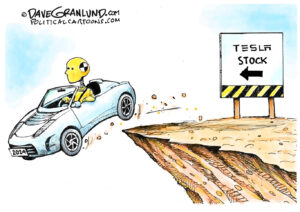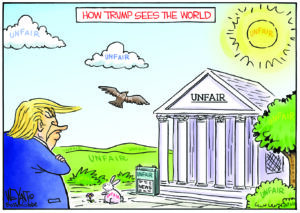Credit Card Companies Are Fleecing Us All
Credit card companies are swindling retailers to give high-end spenders cash back, creating a system the rest of us end up subsidizing. Blue Coat Photos / CC BY-SA 2.0
Blue Coat Photos / CC BY-SA 2.0
What happens when we use our credit cards? We all think we know. We charge a purchase, we incur a debt. If we pay off that debt within a month, we face no interest charge. End of story.
Not quite. Something else important is happening whenever we make a credit card charge: We’re making already rich people considerably richer.
Our credit cards are bankrolling some of Corporate America’s largest executive paychecks. K.I. Chenault, for instance, pocketed nearly $400 million from American Express between his 2001 hiring as CEO and his retirement in early 2018. That same year, Visa’s four highest-paid execs all pulled down over $12.5 million each.
What exactly makes sitting in the credit card industry’s executive suites so lucrative? Must be all that interest from poor souls who can’t quickly pay off their balances, right?
Not quite. The interest consumers pay on card purchases certainly does add up. But our credit card giants, as former U.S. Treasury Department official Aaron Klein points out, actually get the bulk of their profit from the “swipe fees” the credit card industry charges merchants.
These fees typically run from 3 to 5 percent of the purchase price. The larger your purchase, in other words, the more money credit card companies rake in from merchants. And that gives our credit card giants a powerful incentive to get as many affluent high-spenders as possible using their cards.
Enter the cash-back reward. Credit card companies spend billions every year “rebating” cash to the holders of luxury high-end credit cards.
Average consumers can get cash-back rewards, too, but at nowhere near the rates that credit card execs extend to their wealthiest customers. The most affluent purchasers can get 3 percent or more of their purchases back — triple the 1 percent cash-back rate average-income consumers can usually expect.
About half of Americans — those the credit industry rates as “subprime” — won’t even get that. These households most often end up using debit cards, not credit cards. Debit cards return zilch back on purchases.
The affluent don’t just get more cash back than anyone else. They also get a tax break. The IRS doesn’t categorize credit-card rewards as taxable income. This can amount to a big deal.
“Consider a wealthy family that racks up charges of $250,000 a year on a top-of-the-line credit card that gives them 2.5 percent cash back,” as Aaron Klein asks in a Los Angeles Times op-ed. “That family gets a $6,250 stocking stuffer from the payment system elves — worth more than $10,000 in pre-tax wages.”
The rest of us end up subsidizing these cash-back bonanzas. How so?
Simple. Retailers pay higher “swipe fees” to credit card companies when they process a luxury-card purchase. Why don’t retailers just charge the holders of luxury cards more? They can’t. Their contracts with credit card companies forbid that.
If merchants, Klein explains, “could pass the fees they pay for accepting a rewards credit card on to the customer using it, wealthier people would see higher prices, or customers using cash or debit would pay less.”
Getting the picture? We have a rigged system here, a set of private- and public-sector policies that funnel money into America’s deepest pockets.
The U.S. Supreme Court approves. In 2018, by a 5-4 vote, justices gave credit card companies the green light to continue imposing, as one merchant group charged, “a gag order on retailers’ ability to educate their customers on how high swipe fees drive up the price of merchandise.”
Any system rigged to reward rich people can, of course, be unrigged. The current White House has no interest in leading the charge for that unrigging. Maybe the next one will.
Your support matters…Independent journalism is under threat and overshadowed by heavily funded mainstream media.
You can help level the playing field. Become a member.
Your tax-deductible contribution keeps us digging beneath the headlines to give you thought-provoking, investigative reporting and analysis that unearths what's really happening- without compromise.
Give today to support our courageous, independent journalists.






You need to be a supporter to comment.
There are currently no responses to this article.
Be the first to respond.